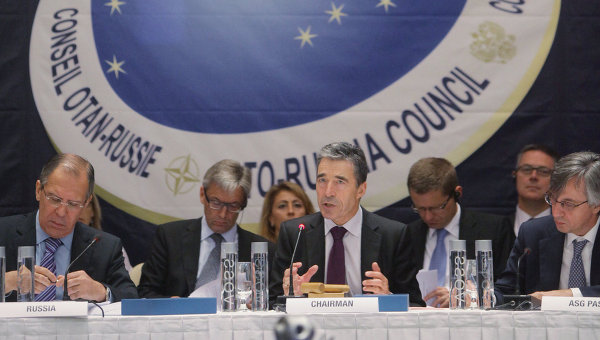
Russian Experts Disagree On Missile Defense Guarantees
Publication: Eurasia Daily Monitor Volume: 8 Issue: 131
By:

Follow-up reports in Moscow in the aftermath of the failed NATO-Russia Council discussions on European missile defense underscored the fact that any idea of a joint system, as opposed to a joint concept, was dead. Aleksei Arbatov, a leading Russian expert on strategic issues and Director of the Center for International Security at IMEMO, repeated President Dmitry Medvedev’s remarks at Deauville, but put them in the context of the dialectical development of ballistic missiles and missile defense systems. This context made “ballistic missile defense as one of the most complex and contradictory problems of contemporary military-strategic, technological and political issues over which experts have argued for decades” (Nezavisimoye Voyennoye Obozreniye, June 17).
Any missile defense system had to take into account the fact that the costs of developing additional sophisticated ballistic missiles would be more rapid and cheaper. Arbatov reviewed the prospects for the development of intermediate-range ballistic missiles in various countries which could pose a threat to Europe. He concluded that while Iran represents the supposed threat justifying a European missile defense system the Arab Revolution was bringing about regime changes that could lead to other states acquiring both missiles and nuclear weapons. Arbatov linked the emerging missile defense systems being created by the United States in Europe and the Pacific region. Both the Eurasian and Pacific systems had to take into account the appearance of Intercontinental Ballistic Missiles (ICBMs) in other states and their development. And the state with the capacity to produce more nuclear weapons and sophisticated ICBMs is China. Arbatov states that opinion in Moscow dismisses both Iran and North Korean missile and nuclear programs as demanding the creation of missile defense systems and underscores the utility of nuclear deterrence in dealing with them. Arbatov sees US interest in missile defense development as intended to counter potential Chinese ballistic missile modernization, and this is based on a sober US reading of the emerging strategic competition between the US and China (Nezavisimoye Voyennoye Obozreniye, June 17).
Arbatov stresses the fact that the Russian leadership still embraces a doctrine that sees the US and NATO as primary threats and has signaled every intention to invest in its own system of aerospace defense in the State Armament Program to 2020. But here Arbatov identifies emerging US strategic conventional strike systems as the source of the threat. Russia’s State Armament Program to 2020 envisions a major investment in advanced surface-to-air (SAM) systems (S-400 and S-500 series) and interceptor aviation which will be supported by the creation of a new system of command, control, and integration of the missile defense, air defense, early warning systems and monitoring of space. He argues that what is driving this defense investment is the unstated backdrop to the European Missile Defense System, which is the US development of strategic offensive systems for precision strike with conventional warheads from a range of carriers including aviation, cruise missiles, and partially orbiting missile-glider systems.
Russia cannot afford to pursue both its own system of strategic defense and a joint one with NATO. At present, Russia and NATO are engaged in a minuet of declarations without substance. Russia will not receive any guarantees that the Phased, Adaptive, Missile Defense System will not evolve into something that could undermine the capacity of its missiles to strike their targets. But prudent investments in the modernization of inter-continental and short-range missiles can deal with this contingency. Russia cannot afford to forego the development of defenses against strategic conventional strike systems. In this context, Arbatov has proposed a much more sweeping set of negotiations. He recommends that the Russian government should step away from joint missile defense negotiations and in their place:
“…first of all officially inform the western partners that Russia has its own priority and extensive program of aerospace defense, including missile defense. The country cannot do two systems: one with NATO and another against it. It is necessary to note that the basis for aerospace defense is Russia’s concern regarding a series of strike means, programs, and concepts for the use of the latest non-nuclear weapons of the US. Their non-targeting against Russia and possible limitation (by type of inclusion in the START Treaty of conventional warheads of ballistic missiles) must be the subject of the next stage of negotiations on reductions of strategic nuclear arms. In parallel with this Russia is prepared to discuss limitation of tactical nuclear weapons along with measures to revive an adapted Conventional Forces in Europe Treaty” (Nezavisimoye Voyennoye Obozreniye, June 17).
On May 27 Vladimir Kozin, Chief of the Section of Analysis and Forecasting of the Department of All-Asian Problems of the Ministry of Foreign Affairs, produced a similar analysis of the obstacles to a US-Russian treaty on tactical nuclear weapons. Kozin, a frequent commentator on strategic arms negotiations, European missile defense, and tactical nuclear weapons negotiations, enumerated five impediments to a US-Russian treaty on tactical nuclear weapons. The obstacles included: 1. defining the subject of negotiations understood under the term tactical nuclear weapons; 2. the geographic factor as to what areas of deployment would be taken into consideration when such arsenals are possessed by other powers and when the United States enjoys an asymmetric advantage in deploying such systems beyond its own borders including in areas close to Russian territory; 3. prescribed accounting rules with reference to when it will be done and by whom, with Russia demanding that the accounting take place as part of the negotiations and by each side; 4. decision coordination, which means addressing linkages in key areas so that reductions in strategic and tactical nuclear weapons do not serve to stimulate greater strategic instability, including space-based strike systems where Washington seems intent upon developing and western advantages in conventional military capabilities in Europe. The fifth obstacle was what Kozin called “additional recommendations,” which involved several parallel decisions on “a series of other strategically important problems, affecting the regional and global balance of forces.” These involved unilateral concessions from Washington giving up its plans to build a missile defense system in southern and Eastern Europe and removing its tactical nuclear weapons from Europe. Short of securing such unilateral concessions before negotiations, “Russia should not by any means permit an erosion of its position” (Nezavisimoye Voyennoye Obozreniye, May 27).
Russian commentators when asked if there would be a US-NATO guarantee regarding a missile defense system not directed against Russia replied: “There is no and will be no such guarantee.” But their arguments in support of that proposition reflected the deep divisions among experts. Dmitry Riurikov, a senior researcher with the Institute of Contemporary International Problems, called for an end to any illusion about a treaty with the US and NATO. “We must sharply alter [our] policy. We must not subordinate ourselves to the US or to any other power but must be guided exclusively by our own national security interests” (Literaturnaia Gazeta, June 15).
Aleksandr Khramchikhin, one of the most outspoken commentators on security policy, dismissed the very idea of a guarantee as a senseless exercise which would not be worth the paper it would be written upon. Moreover, he dismissed the US initiative for missile defense in Europe as a poor attempt to recapture leadership of an alliance on a new basis when NATO itself is dying: “I would even say that it is at death’s door.” European missile defense in this context is a political drama about a non-existent threat more to impress the Europeans than to frighten the Russians (Literaturnaia Gazeta, June 15).
Major-General (retired) Aleksandr Vladimirov, an outspoken critic of Russian military reform under Defense Minister Anatoliy Serdyukov, put the current debate on European missile defense in the context of a persistent decline in Russian defense capabilities under a succession of incompetent commanders-in-chief. Vladimirov dismissed the entire effort by the Obama administration to “reset” US-Russian relations as nothing more than a tactic to discover what concessions Russia was willing to make, while the United States pursued its long-term strategic goal: “Therefore the main goal of the US in relation to Russia is to reduce as much as possible our nuclear forces because precisely they are the last barrier before the US on the path to universal dominion.” The very discussion of a guarantee with regard to European missile defense was just another sign of Russian weakness, which remained evident to western leaders. “Therefore, all the remarks by our political leaders about threatening a new arms race do not make any impression in the West. They simply do not believe it,” according to Vladimirov (Literaturnaia Gazeta, June 15).
One might wonder how Western leaders should respond to what can best be described as a strategic cacophony. The answer would seem to be to explore the explicit linkage by Russian commentators of missile defense, tactical nuclear negotiations, and the CFE Treaty and accept the clear statement that no concessions from the Russian side are to be expected in these areas. The US and NATO should not expect much progress until 2020 when both sides will have carried out their armament programs. Yet, one surely can ask if Moscow and Washington understand the changing strategic landscape, which is making their negotiations less and less central to the international system. NATO is weaker after seven years of nation-building in Afghanistan. The global economy is in the process of shifting its center of gravity to the Pacific region. Washington is deeply absorbed by its own economic crisis and unsure about how to deal with the Arab Revolutions. Moscow faces its own litany of economic, social, and political problems for which Putinism does not promise many answers. Perhaps after the 2012 elections in Russia and the United States there will be another chance to reframe relations outside of the Cold War context which we seem unable and/or unwilling to escape. Short of that we will have another cold decade.




